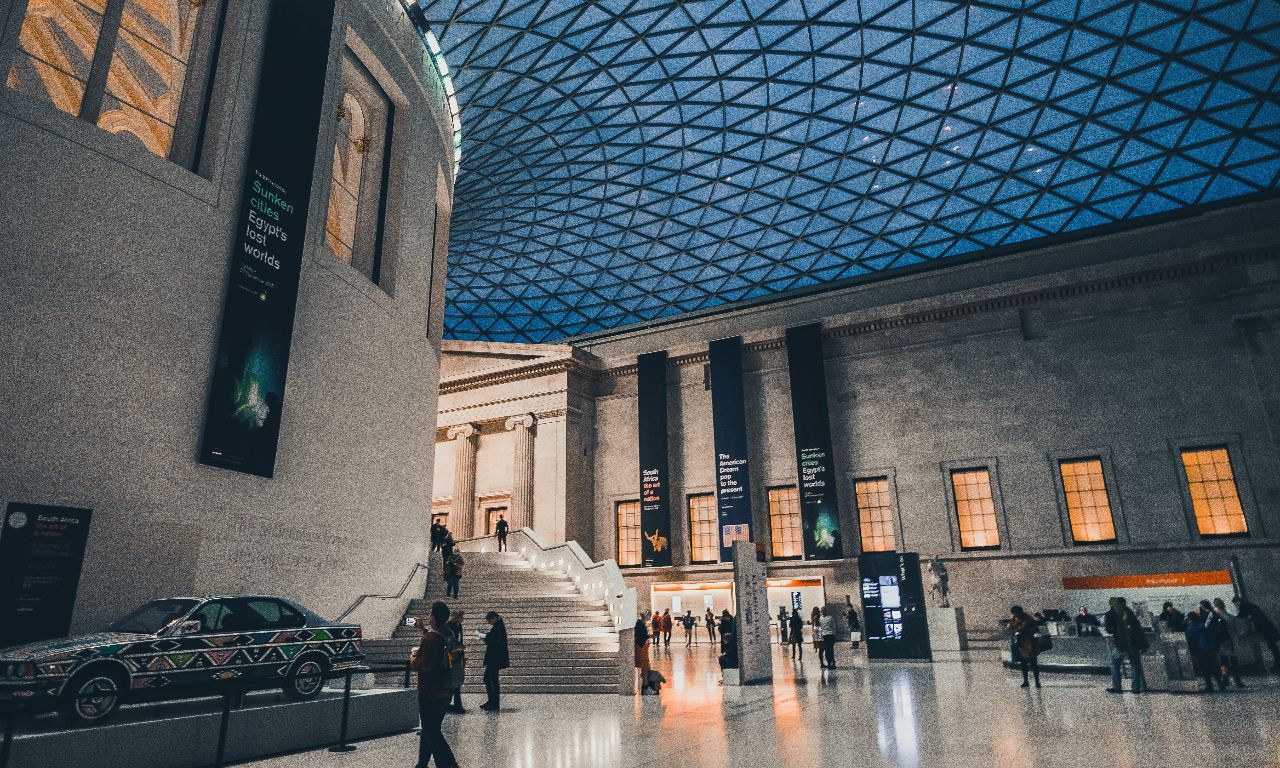The London firm Howard Kennedy LLP will now take on Yilin Wang's case against the British Museum (pictured)
The Vancouver-based writer, poet and translator Yilin Wang is suing the British Museum for copyright and moral rights infringement after raising more than £15,000 via hundreds of contributions to her Crowd Justice campaign. The London firm Howard Kennedy LLP will now take on her case.
According to her campaign page, Wang recently discovered that the British Museum exhibition China’s Hidden Century featured a full copy of her published translation of a poem by the Chinese feminist poet Qiu Jin without contacting her “and thus without any permission, credit, or payment”.
Wang’s translations of Qiu Jin’s poetry were used “in multiple formats”, she says, including in a giant projection, on a sign, in digital and print audio guides and in an audio guide in their app store. Her translations are also quoted in the exhibition catalogue—one with no citation or credit attached.
After Wang challenged the museum, it removed her translations from its exhibition—though the translator says the institution’s correspondence with her has “added insult to injury”. Wang says that, initially, the British Museum claimed they had simply forgotten to credit her and sent her a permission form, “emphasising how other contributors let them use their work for free or at a low cost”. Around 24 hours later, the museum contacted her to say they had removed all of Wang’s translations from the exhibition. The Chinese originals have also been erased.
In a statement, the British Museum says it “fully accepts it made a mistake, has apologised to Ms Wang and sought to make amends financially. We have not offered just £150 as Ms Wang has suggested but £600. This is benchmarked to industry rates”.
According to the museum, “the translations came down at Ms Wang’s explicit request”. The statement continues: “The museum didn’t consider it appropriate to continue using the translations when Ms Wang had expressly informed us that they did not consent to their use and there had been no engagement with the museum’s efforts to obtain their consent. We engaged with Ms Wang as soon as we were alerted to the issue they raised and we have acted in good faith trying to resolve this through the appropriate channels and directly with her—not on social media.”
Wang denies she requested her work to be removed, rather that she asked for it to be taken down “unless I was promptly remunerated and credited for [its] use,” her campaign website states. In addition, Wang says the museum is “refusing to provide any further details as to what deficiencies in their processes made this human oversight possible”.
According to Wang’s campaign page, the British Museum has said it cannot reinstate her translations and the poetry of Qiu Jin “for practical reasons”—a position Wang describes as “the worst possible outcome”. She adds: “The public are now not only being denied the chance to see my translations, and to know who wrote them, but also the chance to read Qiu Jin’s words too. The result is that two female writers of colour have both had their work erased. We are not disposable.”
The British Museum statement points out that, while the Qiu Jin poem translated by Wang no longer appears, “Qiu Jin and her story very much remain a prominent part of our exhibition”. According to an earlier statement released on 21 June, the museum noted that it worked with more than 400 people from 20 countries to produce the exhibition, including 30 lenders and numerous other contributors. The show is the culmination of a four year-long research project made possible by a grant of more than £700,000, and led by two British academics.
“Despite offering Ms Wang apologies and compensation we have been unable to reach agreement on how to resolve the issue,” the British Museum's statement concludes.
Jon Sharples, an intellectual property and art lawyer with Howard Kennedy LLP, says it is “shameless” to say that Wang will not now be credited “because both her words and the original words of feminist revolutionary poet Qiu Jin will remain airbrushed from the exhibition”. He adds: “One wonders what the sponsors of the show, Citibank and the Huo Family Foundation, think of this reckless disregard for the value of poetry and its place in Chinese culture.” Sharples notes that the legal case will not only focus on copyright, but also Wang’s moral rights, in particular the right to attribution—or the right to be named or identified as the author.
Mark Stephens, a partner at Howard Kennedy LLP, says the British Museum has “handled this in a high-handed and cavalier manner”. He adds “It is really shoddy for a large, national organisation that holds itself out as a bastion of British enlightenment and fair play to conduct themselves in this way.” Stephens describes the misuse of Wang’s work as “just the latest example of the British Museum’s colonialist attitudes and rapacious spoliation of other cultures”.

